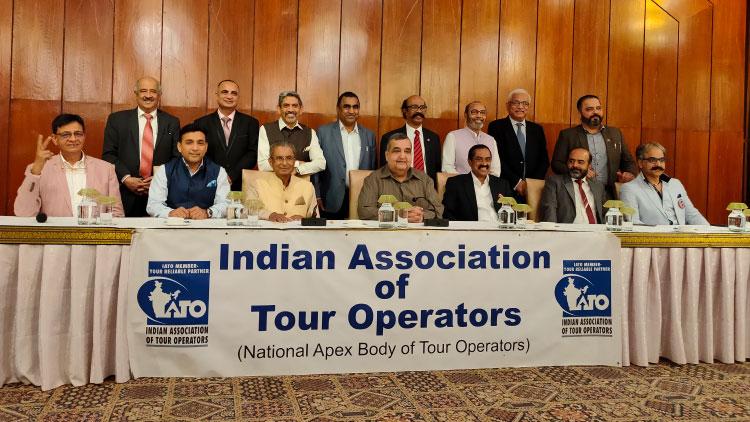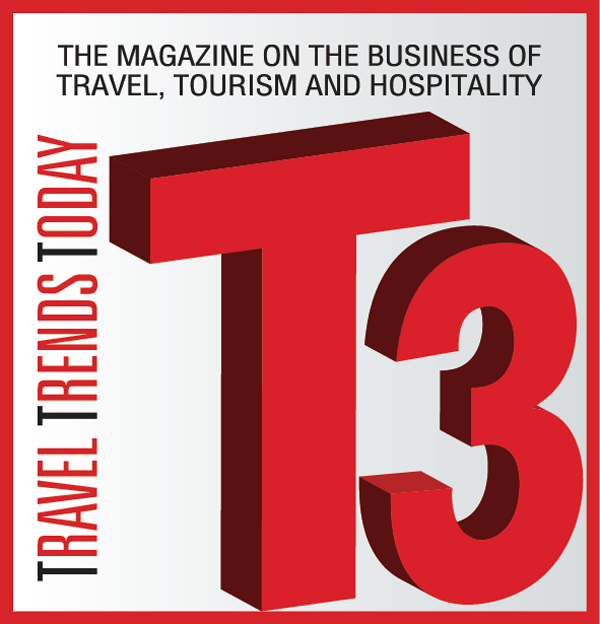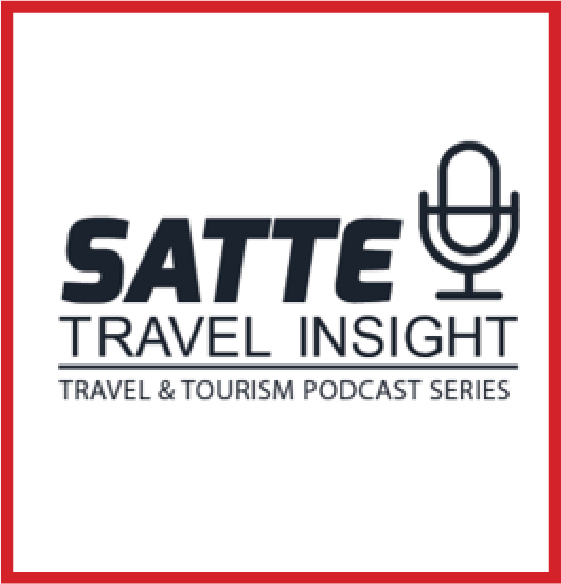IATO to setup an advisory board soon; reinstate the Outbound Tourism Committee
 Representative image
Representative image
The association's new leadership has hit the ground running—rolling out a slew of reforms, signing strategic MoUs, urging PM for INR 1,000 crore allocation under the Incredible India campaign and proposing the formation of an India Tourism Board. The association has also set focus on empowering members through digital communication upgrades, regional outreach, and the creation of active sub-committees to address sector-specific challenges. All of this comes ahead of its 40th Annual Convention in Puri this August.
The Indian Association of Tour Operators (IATO) recently held its Executive Committee (EC) meeting at The Park Hotel. Within 20 days in office, the newly elected team has convened two EC meetings and is already working to strengthen operations and policy influence, shared the newly elected President, Ravi Gosain.
He also confirmed that IATO is in the process of establishing an Advisory Board, which will comprise 10 to 15 senior professionals from across the tourism, hospitality, and bureaucratic ecosystem.
“The board will be formed by invitation only, with selection based on experience and industry contribution. The idea is to bring together voices beyond just the EC—seasoned professionals, retired bureaucrats, and domain experts—who can offer strategic inputs and a broader perspective. The board will function through agenda-driven workshops, culminating in actionable recommendations. The first set of invitations is expected to be rolled out within a month. This is a voluntary initiative, and we’re hopeful that many respected names will join us in shaping IATO’s future roadmap,” added Gosain.
Outbound focus:
Besides, IATO is planning to revive its focus on outbound tourism with the re-establishment of the Outbound Tourism Committee aimed at fostering international partnerships and supporting members engaged in outbound business. “We’re fully open to exploring mutual agreements with global tour operator associations and tourism boards to promote outbound travel,” said Gosain.
The sub-committee’s core responsibility will be to initiate MoUs with international counterparts, integrate more tourism boards, and provide Indian operators with access to emerging travel products.
“With 30–35% of IATO members now actively involved in outbound tourism—a shift accelerated post-COVID—the association is adapting to represent their evolving needs. We’ve seen a surge in interest from outbound operators, especially after our successful intervention on the TCS issue with the Finance Ministry. Many view IATO as a strong voice for their concerns,” he added, hinting that a senior outbound travel expert will soon be appointed to head the committee.
On the international front, IATO has also signed two significant MoUs with the Nepal Association of Travel and Tour Agents (NATTA) and a tourism body in Myanmar, aimed at strengthening bilateral cooperation and two-way tourism promotion. “These agreements will enable better information sharing, joint promotional efforts, and strategic partnerships between our members,” said Gosain.
Goal? To grow beyond existing benchmarks:
Addressing the gathering, IATO President Gosain also emphasised the intent to build upon the legacy of past leadership while injecting new energy into the association’s direction. “We’ve had valuable contributions from experienced minds in the industry including Mr Mehra who is leaving behind a legacy. Our goal is to grow beyond existing benchmarks by pursuing new ideas and actionable outcomes,” he said.
The new leadership has already met with key government authorities including the Director General of Civil Aviation (DGCA), the Chairman of the Centre for Air Quality Management, and the Joint Secretary and DG – Ministry of Tourism to push forward critical concerns affecting the travel trade.
“IATO has raised the slowing inbound tourism as a critical concern in recent meetings with the Ministry of Tourism. We’ve been in constant dialogue with the government. The officials understand the urgency, but the lack of marketing budget is a major constraint,” added Gosain.
IATO has also sent formal recommendations to the Prime Minister, with copies to the Ministries of Finance, External Affairs, and Tourism, advocating for the recognition of tourism as an export industry with tariff-free status and leveraging tourism as a soft diplomacy tool—both of which were in line with recent policy discourse at the highest level.
Emphasising the critical role of tourism as both a foreign exchange earner and a soft diplomacy tool, IATO has written to the Prime Minister urging a INR 1,000 crore allocation under the Incredible India campaign and the creation of an India Tourism Board, chaired by the PM, to drive foreign tourist arrivals. With the upcoming season approaching, the association stresses that immediate action is essential to revive inbound momentum within this financial year.
“Considering every foreign visitor to India becomes an ambassador of Indian culture, heritage, values and the immense multiplier impact it has in terms of employment generator and net revenue it earns, we still have not valued it as much as we should have. This sector alone has the potential to contribute 1-2 percent to the GDP and therefore this engine needs to fire,” said Gosain.
Skill development:
In a forward-looking move, IATO is prioritising skill development and grassroots training across all levels of the tourism workforce, from senior management to ground staff like drivers and airport representatives. A first responder training initiative for drivers and airport representatives was already piloted in Delhi with 40 participants and will now be rolled out across 7–8 major cities.
Highlighting the lack of up-to-date, digitally skilled manpower, the association plans to roll out training workshops on AI, automation, and first responder techniques such as CPR. The vision includes conducting 100 training sessions annually and engaging local chapters, schools, and NGOs in cleanliness drives to promote responsible tourism. These social impact initiatives, though not directly commercial, aim to showcase IATO’s on-ground commitment and strengthen its credibility with government bodies.
Inclusive Member Engagement:
To improve its member outreach, IATO will now host quarterly online EC meetings, allowing members across the country to engage with leadership directly. Chapter-level interactions are also being regularised, with a push to involve office bearers in regional dialogue.
Committees, previously in place but largely inactive, are also being restructured with fewer but more engaged members. IATO is now forming dedicated sub-committees and task forces. These bodies will tackle specific concerns such as hotel rates, roadshows, and business challenges. The best-performing sub-committees will be acknowledged during the IATO Convention.
During his address, Senior Vice President, Rajnish Kaistha also emphasised the need for collective effort and collaboration through committees and think tanks to move forward. He also urged members to promote emerging regions like the North-East, which has growing infrastructure but low inbound tourism, presenting a potential market for tour operators.
Sectoral issues:
Other key policy challenges were also discussed by Sunil Mishra, Hony. Secretary, which include pending airline refunds and the need for a guaranteed mechanism in case of airline insolvencies, discussed with the DGCA; guide fee irregularities in Maharashtra, for which IATO is pushing for enforcement of approved government rates, pollution-related travel restrictions (GRAP) in Delhi-NCR, where the association has requested permissions for BS-IV coaches to operate until 2026 to ensure business continuity, diplomatic outreach to remove "Orange" travel advisories issued by some European countries post India-Pakistan tensions, with the Ministry of External Affairs engaged on this front, among other issues discussed.
The association has also advocated for single-window registration and preferential treatment for local Ladakhi tour operators, with the UT’s Secretary Tourism. In another supportive gesture, IATO has also waived membership fees for its Jammu & Kashmir and Ladakh chapters due to operational disruptions and geopolitical sensitivities in the region.
Meanwhile, the association is also gearing up for the 40th IATO Annual Convention scheduled to be held in Puri, Odisha from August 22–24, 2025, with full support assured from the Odisha government. “This will be another important milestone for IATO, and I encourage all members to join us and make this the biggest and most memorable convention yet,” said Gosain.

